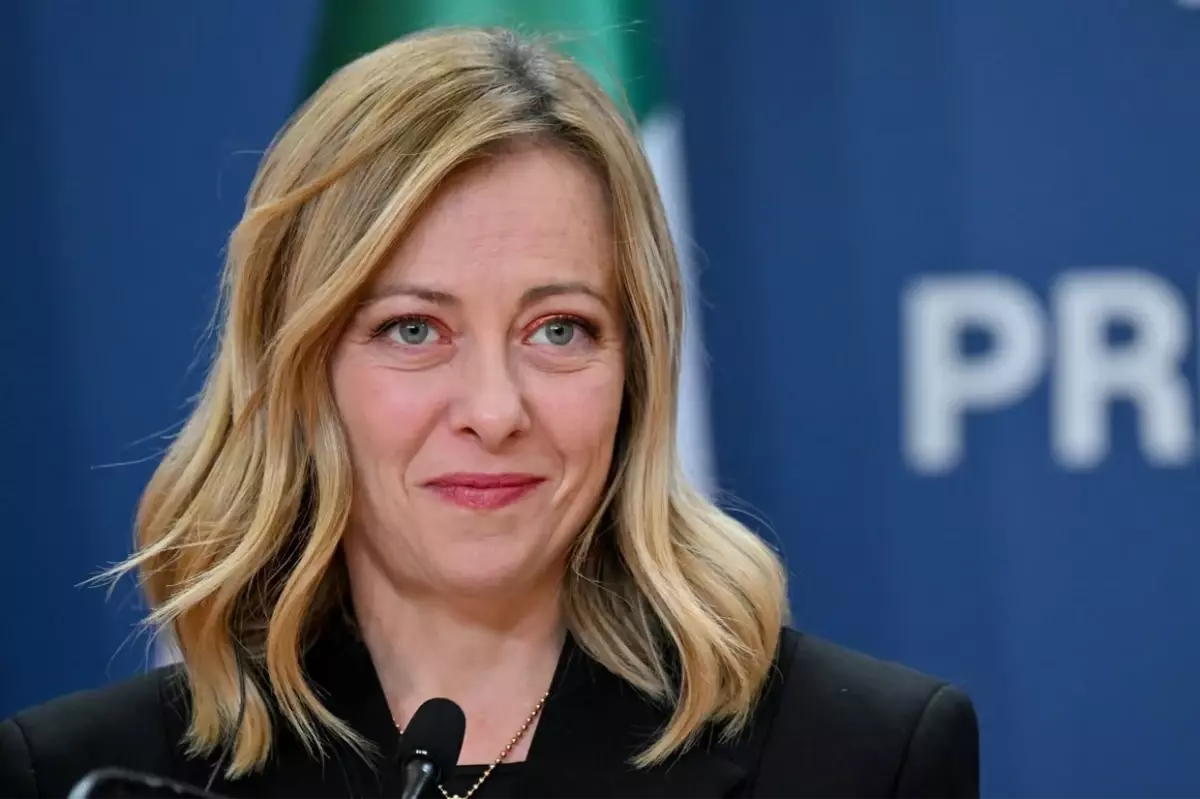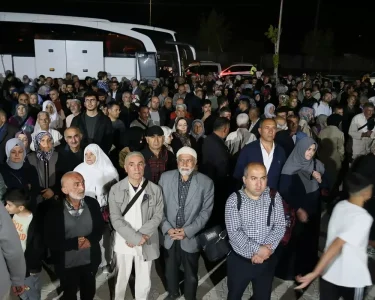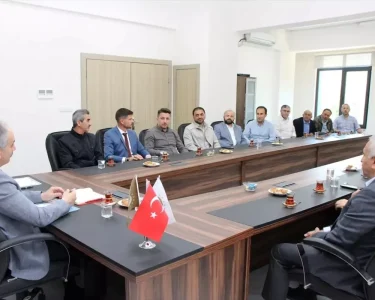FROM a strengthened alliance with Trump to respectful coordination with Brussels, the Italian Prime Minister charts a course on trade, migration, and diplomacy steeped in realpolitik. As her government marks two and a half years, Rome’s foreign policy reflects a consistent focus on national interest and strategic positioning.
“Only the naive are surprised when a country defends its national interests in foreign policy.” Sitting down with Adnkronos for an exclusive interview, Giorgia Meloni delivers the line with the confidence of a leader overseeing a government that has already become Italy’s fifth longest-serving- and all within her first mandate. What she calls her ‘pragmatic’ approach to international relations has become the country’s compass for foreign affairs, helping burnish her credentials on the world stage over the past two and a half years.
Meloni’s comment on national interest refers to Donald Trump’s first 100 days back in office and his foreign policy moves – which shocked international observers but did not surprise her. “The ‘America First’ principle wasn’t just a campaign slogan that American voters ended up rewarding: it was a political program developed for years by key Republican think tanks,” she reasons. What’s more, Washington’s drive to boost its self-reliance “had already emerged under previous administrations, including Democratic ones.”
Indeed, as the Italian PM argues, her government is just as willing to chart its own course. “We are determined to assert our own national interests too, within the traditional friendship that binds us to the United States. Loyally, but never submissively.” A recent sign of that bond, she notes, is Trump’s decision to reinstate Columbus Day – “a celebration so dear to the Italian-American community, and one that in recent years suffered a shameful ideological assault in the name of cancel culture.”
That political affinity certainly hasn’t hurt the building of ties between Meloni and Trump. Over the past few weeks, she has established herself as one of the very few European leaders to develop a strong relationship with the U.S. president – at a time when the European Union’s voice is struggling to reach the White House. During her last visit to Washington, Trump expressed ‘full’ confidence that the EU and the U.S. would reach a trade deal – much to the relief of European capitals facing the threat of steep U.S. tariffs.
“I’m pleased if my meeting with President Trump helped lay the political groundwork for a more substantive dialogue,” she says. “Italy is working to bring the two sides of the Atlantic closer together, because we believe in the West not just as a geopolitical bloc, but as a shared system of values, international alliances, and trade relations” – a stance she summed up during her White House visit with the motto ‘Make the West great again.’
The Italian PM believes the EU’s position “must, of course, begin with defending the interests of our citizens. But we must never forget that only by standing together can Europe and America remain strong in an increasingly complex küresel landscape.”
The U.S. tariff threats have inevitably rattled Italy, ‘one of the world’s leading exporting nations,’ which ‘competes neck and neck with other major countries for fourth place globally,’ as Meloni underscores with pride. Her government, she adds, has been ‘strongly supporting exports and opening up new markets well before Trump’s return.’ She calls for küresel trade that’s open as well as fair, ‘in line with Italy’s national interest.’ While stressing that tariff decisions ultimately lie with the European Commission, she notes that Rome is ‘certainly working’ with the U.S. and other international partners “to relaunch investment and joint projects where Italian companies can play a prominent role.”
Meloni’s approach to the EU is another example of her self-styled pragmatism. While some feared she would leverage her ties with Trump to carve out tariff exceptions for Italy, she instead offered to act as a facilitator between the bloc and the White House. The prime minister describes her relationship with European Commission President Ursula von der Leyen as built on ‘mutual respect and a shared commitment to solving problems, with maximum frankness when needed.’ Italy’s proposals, she adds, have gained traction on matters ranging from the Recovery Plan to migration – a subject where Rome and Brussels’ positions have grown much closer.
“When differences arise – as they did recently, when I strongly argued that European defense investments shouldn’t focus solely on weaponry but should also address citizens’ security more broadly – we’ve defended our position and obtained good results. That’s the approach I take with all international counterparts,” she stresses. The EU’s Green Deal remains a sticking point: she would like to see it ‘swiftly reshaped’ so that ‘it no longer acts as a burden on the competitiveness of our businesses’ – a theme that also emerged at the European People’s Party Congress, as she remarks.
Meloni’s relations with French President Emmanuel Macron reflect the broader dynamics between the ‘two great European nations’ they represent: “Friendly, neighboring countries with many common interests, as well as healthy rivalry in various sectors” – and, at a personal level, different political sensitivities. “Our relationship is a result of all those nuances, but it’s also shaped by the practical familiarity that comes from working together on many files. As you might have noticed, my approach to international relations is very pragmatic: I focus on concrete outcomes. And in many areas, Italy and France find themselves on the same side.”
Turning to the other major EU power, Germany, Meloni has been in contact with soon-to-be Chancellor Friedrich Merz and extends her ‘warmest wishes’ to him and his new government. Having read some of his remarks at the EPP Congress, particularly on competitiveness and the Green Deal, she says she felt ‘strongly aligned’ and is ‘confident that we’ll work well together.’
Finally, over in the United Kingdom, Prime Minister Keir Starmer has proven to be ‘a pragmatic leader, unafraid to initiate common work with us’ – despite hailing from the Labour Party and succeeding Meloni’s close ally Rishi Sunak. “We’re cooperating on defense – because clearly, there can be no robust Euro-Atlantic defense system without the United Kingdom,” she stresses. The two are also working on irregular migration, ‘having set aside our initial political differences.’ And having said that, Meloni can’t help but notice that more and more left-wing governments are “gradually moving away from the ideology of uncontrolled immigration.”





